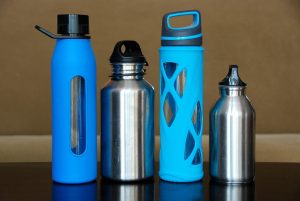Let’s review the vital importance of how to stay hydrated while travelling. Learn about the risks of dehydration, benefits of proper hydration, and practical tips to ensure you drink enough water on your journey.
Travelling presents a unique set of challenges and experiences, from exploring new environments to adapting to different climates. Amidst the excitement, it’s easy to overlook basic health needs, particularly hydration. Drinking sufficient water is paramount for maintaining optimal health, especially when on the move. This article delves into why staying hydrated is essential during travel and offers practical advice for keeping up with your hydration needs.
Water plays a pivotal role in maintaining various bodily functions, from regulating temperature to ensuring proper digestion. When travelling, the need for adequate hydration becomes even more critical due to increased physical activity, exposure to different climates, and the stress of navigating new environments.
Dehydration Risks While Traveling
Effects of Dehydration on the Body
Dehydration can lead to a myriad of health issues, including fatigue, headaches, dizziness, and decreased cognitive function. In severe cases, it can result in more serious conditions like heatstroke, especially in hot climates.
Common Causes of Dehydration in Travelers
Factors contributing to dehydration among travelers include not drinking enough water, consuming diuretic beverages like coffee and alcohol, and engaging in strenuous activities without adequate water intake.
You might want to consider Hydralyte to agment your intake of electrolytes.
The Benefits of Staying Hydrated
Proper hydration ensures that your muscles and joints work efficiently, reducing the risk of cramps and sprains. It also helps to maintain energy levels, keeping fatigue at bay.
Adequate water intake is crucial for maintaining concentration, memory, and mood, enhancing the overall travel experience.
Overcoming Challenges to Stay Hydrated Abroad
Finding Safe Drinking Water
The safety of drinking water varies across different destinations. Researching and planning how to access safe drinking water, whether through bottled water or purification methods, is essential.
Managing Hydration in Different Climates
Travelling to areas with extreme climates, be it hot or cold, can affect your body’s hydration needs. Adjusting your water intake according to the climate is crucial for preventing dehydration.
Practical Tips To Stay Hydrated
Carrying Reusable Water Bottles
Investing in a durable, reusable water bottle ensures that you have water on hand at all times. Choosing bottles with built-in filters can also provide an added layer of safety in areas where water quality is a concern.
Using Water Purification Methods
Portable water purifiers and purification tablets are practical solutions for ensuring the safety of drinking water, especially in remote destinations or where the water quality is questionable.
Stay Hydrated and Altitude
Traveling to high-altitude destinations increases the body’s hydration requirements. The low humidity and higher breathing rate at altitude can lead to quicker dehydration.
Adequate hydration is key in preventing or alleviating symptoms of altitude sickness, making it a critical consideration for trekkers and mountain enthusiasts.
Cultural Aspects of Drinking Water
Being aware of local practices and recommendations for water consumption can guide travelers in making safe choices about where and how to hydrate.
In some cultures, water is a precious resource, and being mindful of consumption and waste is not only respectful but environmentally responsible.
FAQs About Hydration and Travel
- How much water should I drink while traveling? The general recommendation is to drink at least 2-3 liters per day, but this can vary based on activity level, climate, and individual health needs.
- How to ensure water safety when abroad? Opt for sealed bottled water, use water purifiers, or boil water when the safety is uncertain. Always check local advisories and recommendations.
Hydration is a cornerstone of health, particularly when traveling. By understanding the risks of dehydration, the benefits of staying hydrated, and implementing practical strategies for maintaining hydration, travelers can ensure their adventures are both enjoyable and healthy.



